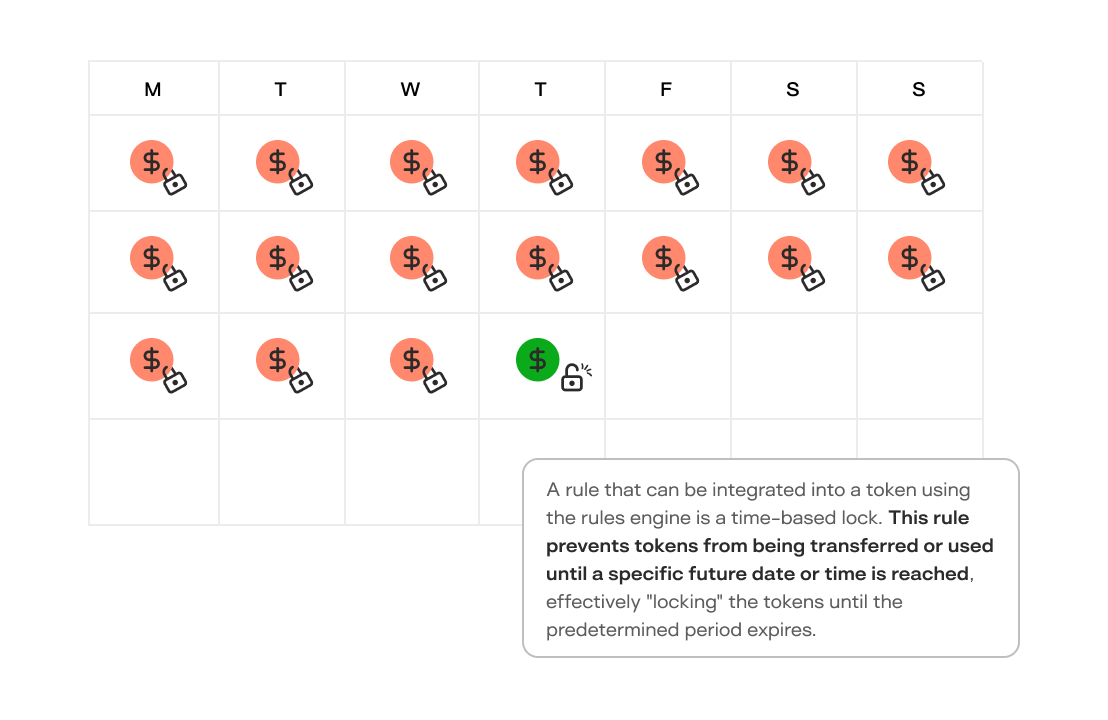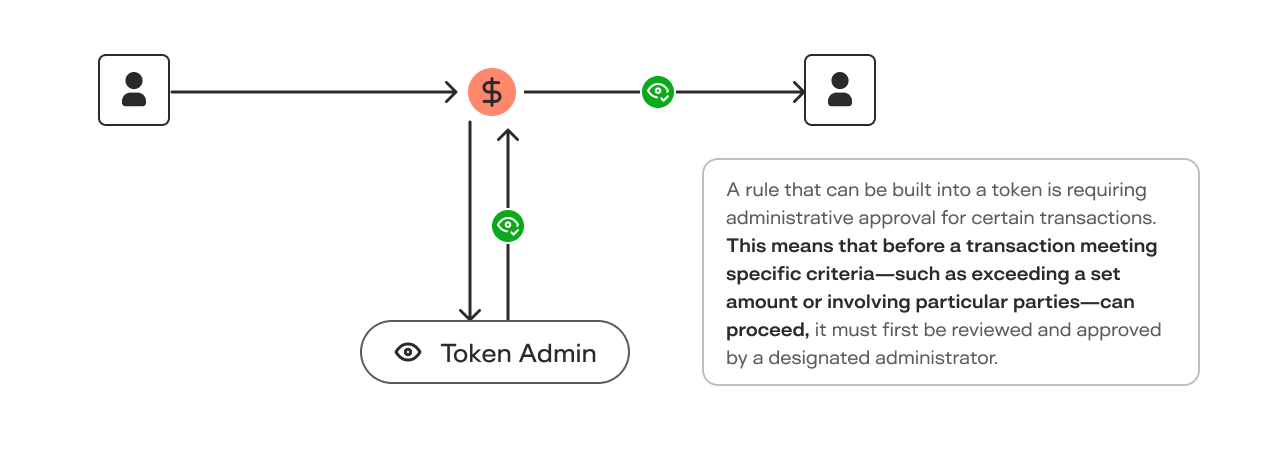Built-in Rules Engine
Keeta's blockchain includes a rules engine that allows token creators to attach specific rules to tokens when they are issued, or later in their life-cycle. These rules define how the token can be used, transferred, or managed on the network. For example, a rule might restrict transfers to certain users, set specific transaction dates, or require approval before transactions can occur.


Automatic Enforcement of Token Rules
The network automatically enforces these attached rules. Whenever a transaction involving the token is initiated, the network checks the token's rules to ensure the transaction complies with them. If the transaction doesn't meet the specified conditions, the network will deny it. This automatic enforcement ensures that all token activities adhere to the intended guidelines without the need for manual oversight.
Updating Token Rules After Issuance
One of the key features of Keeta's rules engine is the ability to update the rules even after the token has been created and distributed. Token issuers can modify the rules to adapt to new regulations, changing business needs, or other factors. Once the rules are updated, the network applies the new conditions to all future transactions involving that token.